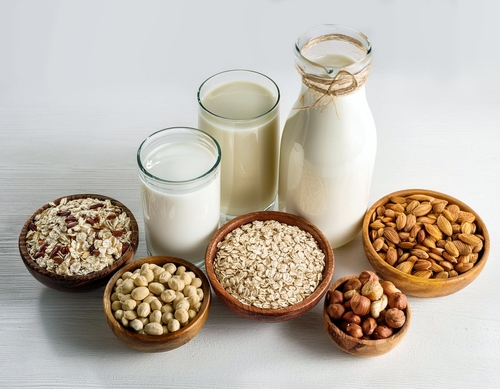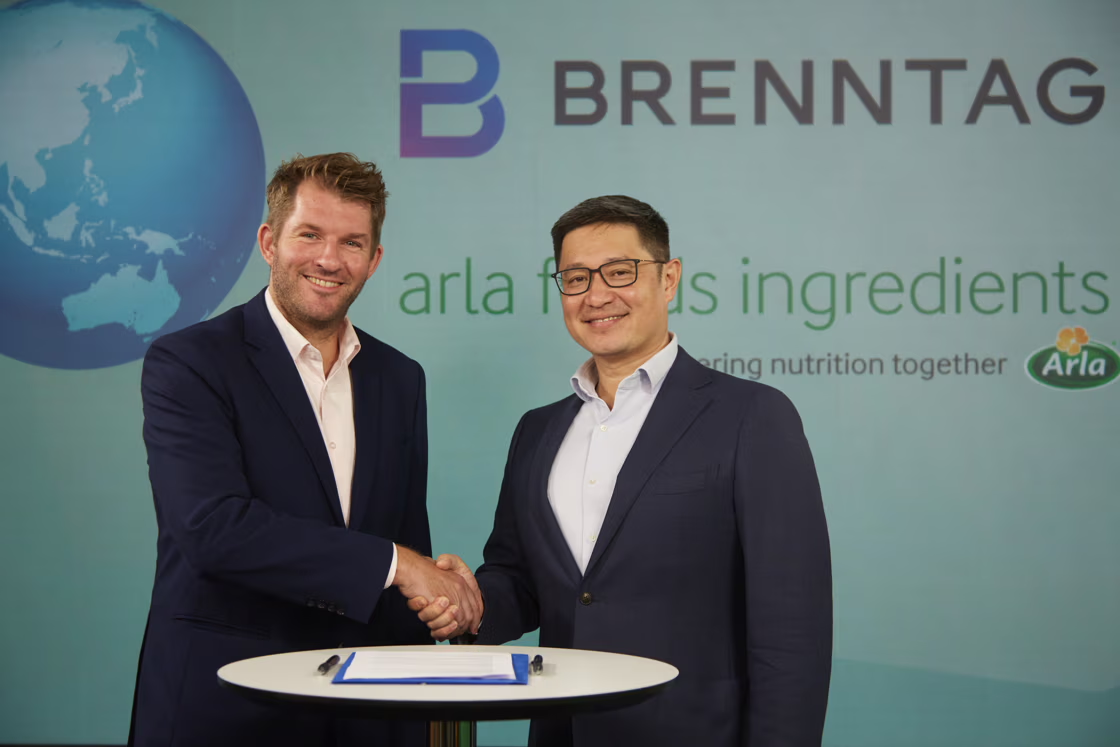GEA’s NiSoMate® becomes an essential compliance tool as EU waste directive comes into force
Posted: 27 October 2025 | New Food | No comments yet
With the EU’s revised Waste Framework Directive now in effect, food and beverage manufacturers face new legal obligations to cut processing waste. GEA’s NiSoMate® delivers real-time, in-line quality control to help producers meet sustainability targets while reducing costly product losses.


Diverse plant-based milks, from oat to soy, reflect the growing scale and complexity of New Food production — a context where continuous quality monitoring helps manufacturers maintain consistency and reduce waste. Credit: Shutterstock
October 2025 marks a pivotal turning point for the global food and beverage industry. With the EU’s Waste Framework Directive now in force, manufacturers must accelerate efforts to achieve binding reductions in processing and manufacturing waste, targeting a 10 percent cut by 2030.
For companies scaling up complex, high-pressure products – such as alternative proteins, precision fermentation outputs and functional beverages – the burden is acute. The high-capacity environment of new food means the financial and environmental consequences of a quality failure are immense.
The challenge of spot sampling
Homogenisation, the critical step that defines product stability, texture and shelf life in fluid systems, is particularly sensitive. Traditional quality control relies on periodic ‘spot sampling’, meaning deviations caused by parameter drift or equipment wear often go undetected for hours. The result: entire multi-tonne batches can be processed off-spec, leading to expensive product rejection and significant waste.
“If the product quality is not good, we can detect this early, allowing a customer to stop the process and check what is wrong, rather than filling a tank of 80,000 litres with bad product.”
GEA has introduced the NiSoMate® Quality Analyzer as a direct solution to this regulatory and financial risk, enabling manufacturers to integrate mandatory sustainability goals with operational efficiency. The system is a dedicated, inline quality monitoring device that uses advanced sensors to provide continuous data on critical fluid characteristics in real time. Importantly, the sensors do not come into direct contact with the product, ensuring maximum hygiene suitable for stringent food and pharmaceutical standards.
From lab to industrial scale
GEA’s range of homogenisers and monitoring systems caters to every stage of production, from table-top units for R&D labs and startups to high-capacity industrial machines capable of handling multi-tonne batches. This flexibility allows producers to validate formulations at a small scale before scaling up to commercial production, all while maintaining product quality and efficiency. NiSoMate can be installed on new equipment or retrofitted to existing lines, ensuring that continuous quality monitoring is accessible regardless of production stage or facility size.
Proactive intervention reduces waste
By shifting quality control from reactive sampling to continuous analysis, NiSoMate enables manufacturers to prevent waste across the entire production run. The data stream informs the process control system, enabling dynamic adjustments to operational parameters – such as homogenisation pressure – the instant a deviation occurs. This ensures product quality is achieved at the lowest pressure possible, optimising energy use and contributing to a lower total cost of ownership.
Eric Ardesch, Regional Manager BU Homogenizers at GEA Group, emphasises the risk mitigation the system provides:
“If the product quality is not good, we can detect this early, allowing a customer to stop the process and check what is wrong, rather than filling a tank of 80,000 litres with bad product.”
Meeting the demands of a growing market
The need for precision is underscored by the rapid growth of plant-based and alternative protein markets. The global plant-based milk market is projected to expand at a CAGR of 7.62 percent through 2034, with oat milk highlighted as the fastest-growing segment in the US. Successful scale-up hinges on maintaining consistent, high quality in these technically complex formulations.
At the same time, global movements towards digitalisation and regulatory compliance are reinforcing the value of continuous monitoring. The US Food and Drug Administration’s early 2025 guidance on Advanced Manufacturing Technologies signals a governmental push towards Quality by Design and continuous manufacturing, both of which rely on real-time analytical monitoring.
By investing in continuous quality monitoring now, manufacturers are not only improving operational efficiency; they are securing compliance with the EU’s Waste Framework Directive and future-proofing operations against costly quality failures that threaten both profitability and brand reputation. GEA’s NiSoMate enables producers to transform a regulatory challenge into a competitive advantage.
Related topics
Alternative Proteins, Cultured Meat, Data & Automation, Food Safety, Food Waste, Ingredients, New product development (NPD), Plant based, Product Development, Proteins & alternative proteins, Quality analysis & quality control (QA/QC), Research & development, Sustainability, Technology & Innovation









